Part of the responsibility I feel in writing my blog and keeping my Facebook page includes bringing awareness to problems and concerns that all chicken-keepers face. We have a lot of fun with stories and pictures of the pleasant side of keeping chickens, but important topics that make us uncomfortable must be addressed as well. My hope in sharing my experiences is that they will provoke constructive dialogue and thought about how we handle these issues individually. How we care for and keep our chickens and property safe is important to discuss, but in the end, our choices are personal and not subject to others’ approval.
With all the joys and benefits that come with keeping backyard chickens, there are plenty of heartbreaks and weighty decisions to be made about their care, chief among them, whether or not to permit a flock to free-range. This is a sensitive subject and for good reason- the stakes are high and the emotions it evokes, even higher.
In a predator-free world, who wouldn’t prefer allowing their chickens to roam freely, unconstrained by galvanized mesh barriers to explore fresh, clean land and manage their own diets by foraging on insects and vegetation, all while getting plenty of exercise? But, we do not live in a predator-free world and choices must be made based upon our risk tolerances and what we feel is right.
THE MYTH OF SUPERVISED FREE RANGE
The theory of “supervised free-range” suggests that one can prevent predators attack from happening by being physically present with the flock while they graze, unconfined. The concept of supervised free-range seems like a reasonable compromise between the two extremes of complete physical freedom and constant confinement to a limited area. Unfortunately, supervised free-range does not actually prevent predator losses as I witnessed just prior to dusk last night. A coyote silently and skillfully procured his dinner from my flock as I stood mere yards away. My rooster, Blaze, immediately rushed to aid his hen, but the perpetrator and his victim were long gone by the time he reached the crime scene.
While I wish it were true that chickens are safe when we are nearby, it simply is not. Free-ranging chickens, supervised and unsupervised are fair game in the food chain. A predator’s hunger can take precedence over any fear of humans, and the speed with which they procure their meal, quicker than the eye. While I was armed with only a camera last night, even if I had been holding a loaded firearm, I could not have prevented or stopped the coyote attack from occurring.
The attack itself, which occurred right behind me, is not depicted in this video, what the video shows is what was going on in front of me as it happened. By the time I turned around, the coyote was a vanishing blur and all that remained of my hen was a pile of feathers (also not shown).
There is no question that unconstrained ranging on pasture is a more natural experience for chickens or that they are healthier as a result of being able to choose from Nature’s buffet of greens and protein sources while getting much-needed exercise. The only question that remains is, what is the best quality of life I can afford my chickens given my risk tolerance for predators?
Personally, I prefer to allow my chickens live their lives fully and freely, unconfined during the day and if Nature claims them back into the food chain, I grudgingly accept that fate.
The messages I hope to impart by sharing this experience are that:
- the benefits and risks of free-ranging should be thoughtfully weighed;
- one’s personal risk tolerance for loss should be carefully considered;
- what one flock-keeper is comfortable with is the right choice for them- others need not approve.
I am always mindful that we built our house in Nature’s backyard, not the other way around and I accept the rules of the game that were in place before we imposed upon it.
Kathy Shea Mormino
Affectionately known internationally as The Chicken Chick®, Kathy Shea Mormino shares a fun-loving, informative style to raising backyard chickens. …Read on


shop my SPONSORS
Part of the responsibility I feel in writing my blog and keeping my Facebook page includes bringing awareness to problems and concerns that all chicken-keepers face. We have a lot of fun with stories and pictures of the pleasant side of keeping chickens, but important topics that make us uncomfortable must be addressed as well. My hope in sharing my experiences is that they will provoke constructive dialogue and thought about how we handle these issues individually. How we care for and keep our chickens and property safe is important to discuss, but in the end, our choices are personal and not subject to others’ approval.
With all the joys and benefits that come with keeping backyard chickens, there are plenty of heartbreaks and weighty decisions to be made about their care, chief among them, whether or not to permit a flock to free-range. This is a sensitive subject and for good reason- the stakes are high and the emotions it evokes, even higher.
In a predator-free world, who wouldn’t prefer allowing their chickens to roam freely, unconstrained by galvanized mesh barriers to explore fresh, clean land and manage their own diets by foraging on insects and vegetation, all while getting plenty of exercise? But, we do not live in a predator-free world and choices must be made based upon our risk tolerances and what we feel is right.
THE MYTH OF SUPERVISED FREE RANGE
The theory of “supervised free-range” suggests that one can prevent predators attack from happening by being physically present with the flock while they graze, unconfined. The concept of supervised free-range seems like a reasonable compromise between the two extremes of complete physical freedom and constant confinement to a limited area. Unfortunately, supervised free-range does not actually prevent predator losses as I witnessed just prior to dusk last night. A coyote silently and skillfully procured his dinner from my flock as I stood mere yards away. My rooster, Blaze, immediately rushed to aid his hen, but the perpetrator and his victim were long gone by the time he reached the crime scene.
While I wish it were true that chickens are safe when we are nearby, it simply is not. Free-ranging chickens, supervised and unsupervised are fair game in the food chain. A predator’s hunger can take precedence over any fear of humans, and the speed with which they procure their meal, quicker than the eye. While I was armed with only a camera last night, even if I had been holding a loaded firearm, I could not have prevented or stopped the coyote attack from occurring.
The attack itself, which occurred right behind me, is not depicted in this video, what the video shows is what was going on in front of me as it happened. By the time I turned around, the coyote was a vanishing blur and all that remained of my hen was a pile of feathers (also not shown).
There is no question that unconstrained ranging on pasture is a more natural experience for chickens or that they are healthier as a result of being able to choose from Nature’s buffet of greens and protein sources while getting much-needed exercise. The only question that remains is, what is the best quality of life I can afford my chickens given my risk tolerance for predators?
Personally, I prefer to allow my chickens live their lives fully and freely, unconfined during the day and if Nature claims them back into the food chain, I grudgingly accept that fate.
The messages I hope to impart by sharing this experience are that:
- the benefits and risks of free-ranging should be thoughtfully weighed;
- one’s personal risk tolerance for loss should be carefully considered;
- what one flock-keeper is comfortable with is the right choice for them- others need not approve.
I am always mindful that we built our house in Nature’s backyard, not the other way around and I accept the rules of the game that were in place before we imposed upon it.




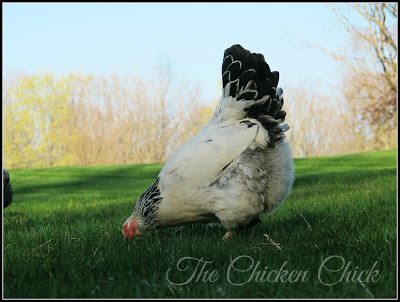
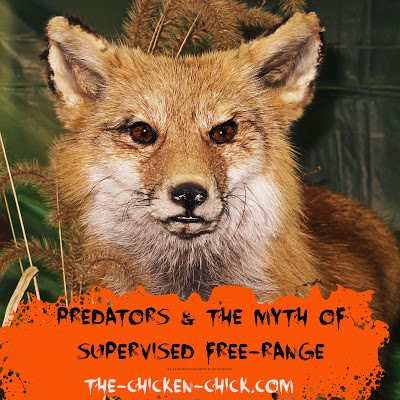
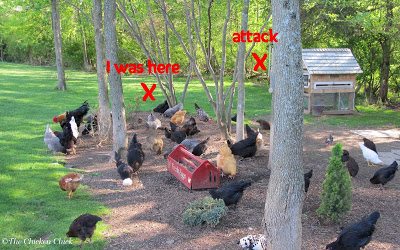
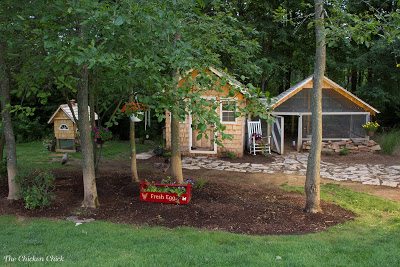
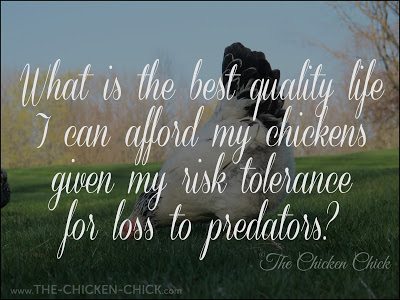
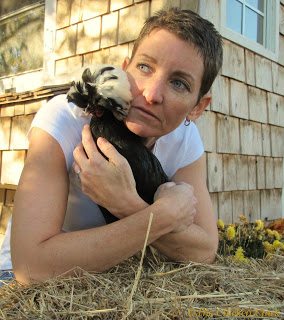














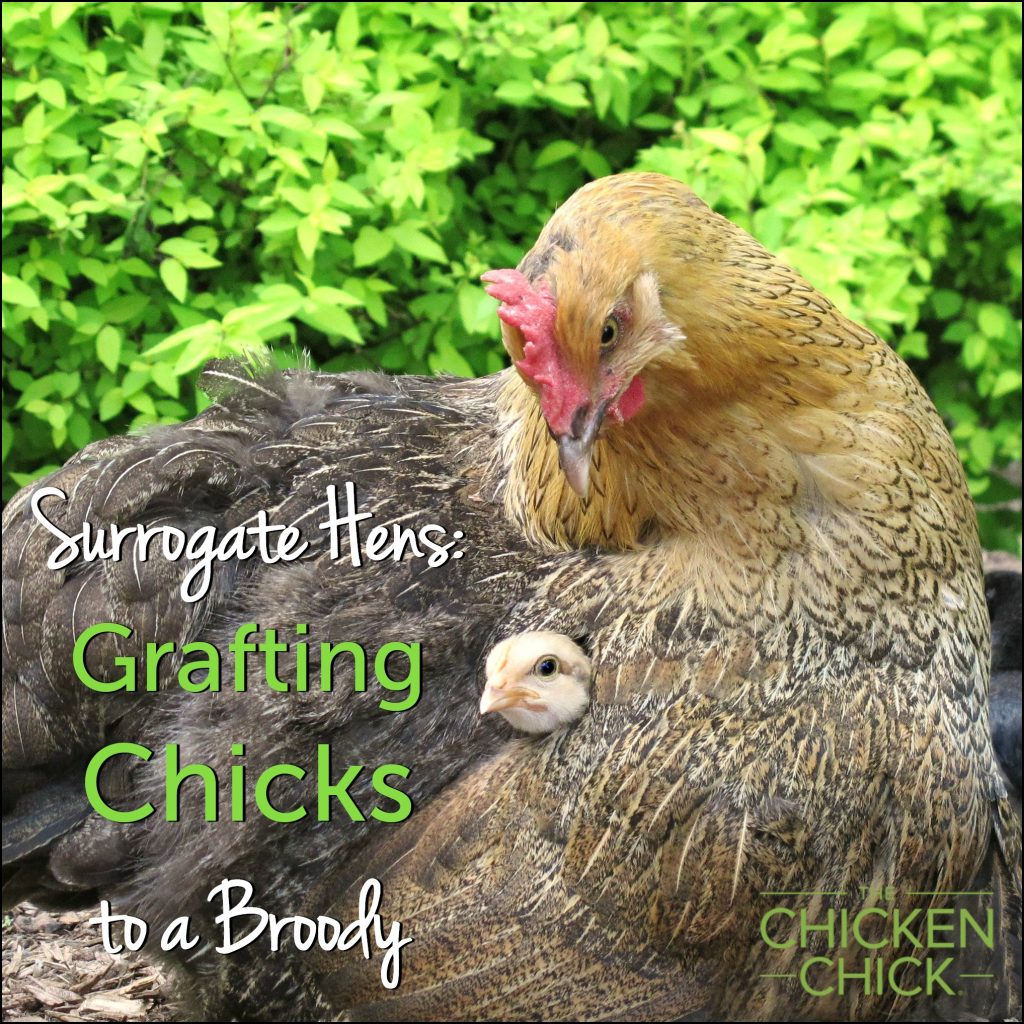
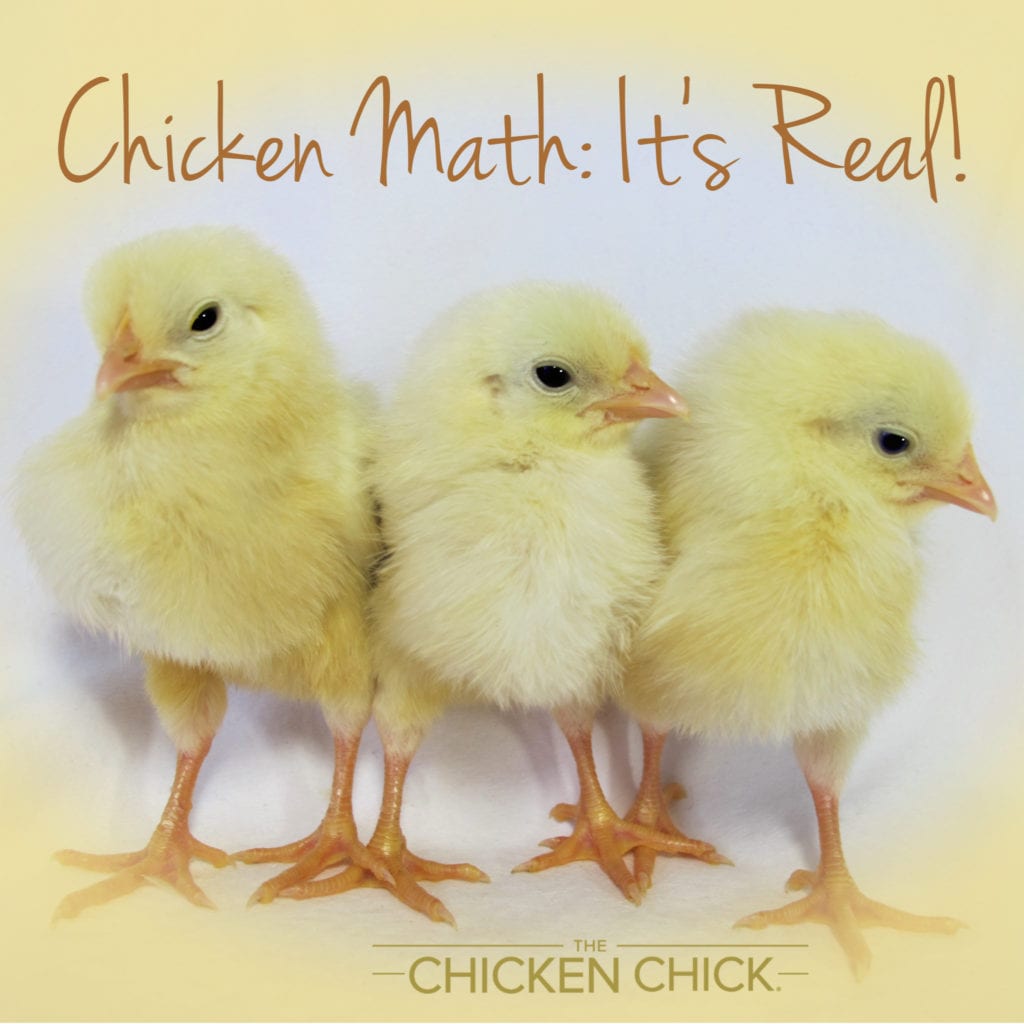









Very good article and helpful. So sorry for your loss. I do hope Rachel is okay. She is so lovely. I lost an entire flock of 10 hens and 2 roos to hawks two years ago. Our boys and girls free ranged all day and roosted in their coop at night. We live in the middle of the forest and they did well for about two months before the hawks found them. I was down to 3 hens and 2 roos when I then moved two hens with one rooster into my smaller enclosed brooder coop & run hoping to… Read more »
We had our first flock of Rhode Island Reds last year. They made it to yearlings and were in their prime of egg-laying and just beautiful when suddenly we started losing 1 or 2 a week. We lost the whole flock and it was very sad! We started with a new flock this year and they are happy and learning their territory. I have a Rottweiler in the yard with them – – – No losses so far! She was a puppy last year and couldn't be trusted with the chickens. She has been trained to "leave them and chase… Read more »
Kathy, I free range during the day and close my two (remaining) hens and rooster up at night. I used to free range all day/night, but lost two hens to two raccoons last week. I lost two last year, also, and another in the spring to a neighbors dog (who, unfortunately, was also running loose). I hate locking them up at night, but I am down to only two hens and the rooster, so I have no choice. I'll go back to free range after I boost the flock back up to 10-15 birds.An unrelated question…the raccoons traumatized my white… Read more »
Thanks so much for a great and timely article. I was wondering about having multiple Roosters. We live on 10 acres, they do not have all, have a Rooster (Barred Rock mix, temperamental), two hens (Barred Rock), and a rescued 5 mo old black/red mixed breed hen. We have 9 six week old chicks, with at least two Roosters, likely more. The chicks range from 5 Barred Rock, 2 possible Black Rock, and two possible White Rock. How many Roosters could we keep and have a peaceful group of chickens? Any typical advice? Or even non-typical! *chuckle. Thank you!
–Suzanne
Great article. I live on acreage and we have hawks, whom I love because they eat snakes! But because of hawks (and all of the 4 legged predators) I've opted not to free range.I have a small flock and would be so sad to lose one because I wasn't careful. But I sure do admire the people who can and do free range. You all have great pictures of your chickens!